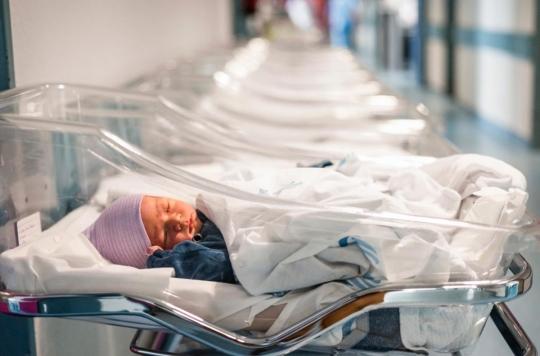Placed infants sometimes have to spend long periods of time in hospital or in nurseries before being reunited with their parents or joining a foster family. This can lead to depression syndrome.

- A nursery takes in emergency children, aged 0 to 3, separated from their parents either for temporary accommodation or by court order.
- There are 33 social nurseries in France.
- A total of 850 places are available for placed babies.
Cases of depression in newborns, hospitalized for weeks or even months or placed in already full nurseries. In a survey published on August 2, Le Figaro is interested in babies suffering from hospitalism syndrome. According to Laroussethis disorder is an impairment of psychomotor development in very young children, caused by prolonged placement in an institution or by a serious affective deficiency.
A syndrome identified in 1946
“This form of depression linked to affective deprivation and the absence of an attachment figure in the context of a long stay in hospital or placement was first described in 1946 by the psychiatrist Rene Spitz”, explains the daily. In a book titled The first year of life, published in 1965, the American psychiatrist draws the conclusions from observations carried out on 123 babies placed in nurseries, and separated from their imprisoned mothers. He then notices that they have withdrawal behavior, a lack of expression and a form of stagnation, caused by a global affective deficiency. In his study, a third of the children die.
Cases identified in France
More than fifty years later, children still suffer from this same syndrome. During the summer of 2021, around ten cases were identified at the Nantes University Hospital (Loire-Atlantique). Other structures are also concerned, for lack of means and space for these children. According to the article of Figarothe care of infants has become more complicated because of different factors: “reduction and aging of foster families, who do not want to take care of children under 3 years old, crisis in the recruitment of professionals and increase in measures for the placement of children in the context of the health crisis.”
A “intensive care” psychic
“They often have weight delays, untreated health problems, multiple deficienciesnotes child psychiatrist Daniel Rousseau at Figaro. Some have experienced terrible emotional deprivation. Their needs are enormous. These are children who can start vomiting when you turn away from them, for example. There are others that we do not hear, who do not ask for their bottle, do not cry, who have let go on the relational level.
However, the management of hospitalism is improving. “We no longer see the pictures of hospitalism as in the post-war era, when a third of these children let themselves die”, warns Daniel Rousseau. To care for these children, we must set up a “intensive care” psychic, giving them a lot of attention, practicing babywearing, etc. According to the child psychiatrist, appropriate care, from a few months to three years, can allow the symptoms to completely disappear.


















